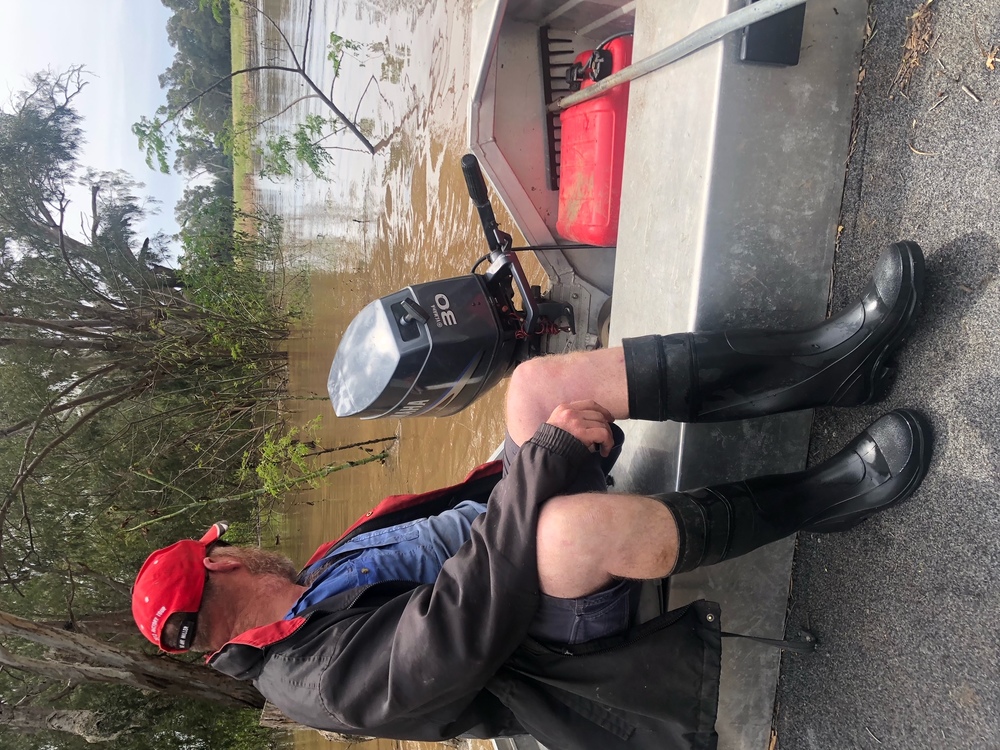Regional people more resilient
Lucy Kirk
03 December 2022, 8:40 PM
 Ruth Reid (The Marra), Tammara Wells (Hermidale), and Sarah Williams (Nyngan) getting vaccinated against the latest health threat.
Ruth Reid (The Marra), Tammara Wells (Hermidale), and Sarah Williams (Nyngan) getting vaccinated against the latest health threat.Amid all the talk and specialised government programs to 'build' rural community resilience a recent survey has shown that people living in country NSW might already be ahead of the pack in terms of their ability to keep their balance during set-backs and bounce back from adversity.
Regional communities have a greater sense of wellbeing than their urban counterparts despite facing more ongoing challenges, according to a snapshot of mental health and wellbeing across rural and regional NSW in 2022.
NSW Mental Health Commissioner Ms. Catherine Lourey said the latest Regional Wellbeing survey identified challenges ranging from floods to drug misuse are having a greater impact on rural and regional communities than in metropolitan areas.
“On top of the impact of repeated natural disasters and Covid-19 lockdowns, more people in the regions see alcohol and drug misuse, lack of job opportunities, and community mobility as big problems than those living in urban areas of NSW,” Ms Lourey said.
Ms Lourey also identified limited access to local amenities, services such as reliable internet, and specialist health services as being particular challenges in regional areas.
“Despite this, regional residents are less likely than those living in urban areas to report high levels of psychological distress and more likely to feel they can recover from difficulties and tend to see challenges as learning opportunities,” Ms Lourey said.
RAMHP Coordinator for the Western NSW Local Health District, Philip Worrad, thinks there is a simple explanation for this.
"It's just part of our lived reality out here," he said.
"We're all connected somehow to what's happening on the country itself, whether it's those people who make their living off the land or those people whose living depends upon those living off the land, we're all going to be impacted by those events we can’t control, so we'll work through it together," he said.

During months of flooding Warren residents continued to find their way to work, school and shopping for supplies. PHOTO: Roz Jackson
While the survey findings are still being assessed to determine whether shared experiences could be one of the keys as to why regional Australia is better at bouncing back, it's findings clearly show a stronger sense of wellbeing for regional communities than their urban counterparts.
The report found that 1 in 3 urban residents have a hard time making it through stressful events, and that almost 1 in 4 take a long time to get over setbacks. It also showed that 10% of urban residents suffer from high psychological distress compared to just 7% of regional NSW residents.
“Unsurprisingly, people living in regions most impacted by floods, bushfires and Covid-related lockdowns reported higher levels of distress and likely Post Traumatic Stress Disorder than those in other regions,” said Ms Lourey.
“And while people in the Western health area reported less distress and greater resilience, this may change in the wake of current flooding," she said.
The NSW data gathered through the Regional Wellbeing Survey did not include data from the 2022 floods, but Mr Worrad says he has no doubt that the resilience built into regional communities will fast track their recovery.
"These are difficult times and people will be struggling, but we know from lived experiences that we can get through this... we will do it again," he said.
The Survey is currently being analysed by the Commission to support agencies to better understand regional differences and strengths across NSW communities and respond to what communities are reporting so responses can take local issues and concerns into account.
To view a full breakdown of the survey's findings, click here.
